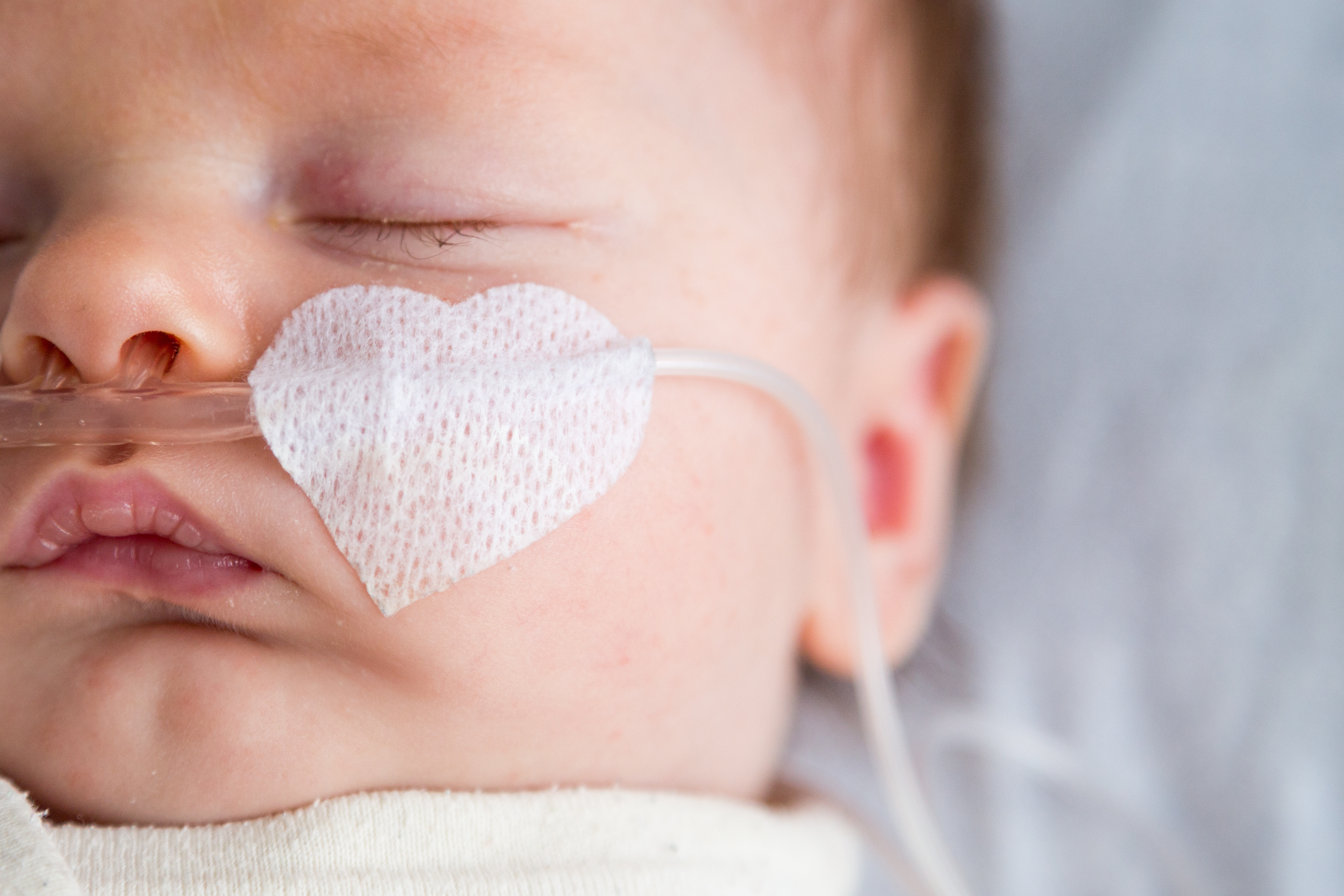Bronchiolitis (RSV): symptoms, treatment and preventative measures
What is bronchiolitis?
What is bronchiolitis?Bronchiolitis is a common infection of the smaller respiratory passages that occurs in newborns and children up until two years of age. It almost always occurs during the fall and winter months.
It is caused by a virus, usually RSV, although other viruses can also be the cause. No single treatment is sufficient (this includes inhalers, physical therapy, antibiotics and mucolytic syrups). The most important thing is for the child to be fed enough to stay hydrated and to avoid exhaustion.
Pathology and symptoms
Pathology and symptoms
The first signs are similar to those of a common cold and can last one to two days:
- runny nose and congestion
- a bit of coughing
- a low fever.
These are followed by the true signs of bronchiolitis:
- faster breathing
- eating less
- noisy breathing with a whistling sound, at times with quite a lot of mucous
- obvious retractions of the chest and abdomen with each inhalation
- fever.
Newborn infants with bronchiolitis are worst on the second and third day and may have difficulty breathing for up to seven to ten (or sometimes even up to fifteen) days. There may be a lingering cough for up to two to four weeks.
Treatment
Treatment- Do not smoke!
- There is no specific treatment (e.g. inhalers, sprays, physical therapy, antibiotics, myolitic suspensions) for bronchiolitis.
- You baby should rest as much as possible and should not be disturbed.
- Give your baby frequent smaller quantities of milk or water.
- If your baby's nose is congested, you may rinse his or her nose with saline solution, gently suction out the mucous with a nasal suction bulb and then administer Nesivine three times a day for a maximum of five days.
If your baby appears listless, is not drinking enough fluids or is younger than three months old, you should bring your baby to the doctor to see whether a hospital admission is indicated. During a hospital stay, your child will likely be monitored and given tube feeding as well as supplemental oxygen. Nurses will allow your child to rest as much as possible and will clean your child's nose regularly.
Preventive measures against RSV
Preventive measures against RSV- Limit visits with your child to healthy adults who are in your close circle of friends and family. We recommend that visitors refrain from giving your child kisses or passing the child from one person to another to be held. Do not allow young children to visit a newborn who is younger than three months.
- Avoid family gatherings and enclosed spaces with lots of people, such as supermarkets, restaurants or public transportation, as much as possible. Especially if your child is younger than three months.
- If the child's other siblings show symptoms of a viral infections keep them away from the baby during the acute phase of the infection.
- Do not send your child to the daycare centre before three months of age, and do not send your child to daycare on days when he or she shows signs of a viral infection.
- Wash your hands before and after contact with the baby (especially after diaper changes, giving a bottle or feeding).
- Wear a mask if you have a cold, cough or fever.
- Air out the child's living room daily, with particular attention for the room where the child sleeps.
- Wash toys and stuffed animals regularly.
- Schedule the first round of vaccines for your child so that your baby will be protected as soon as possible against serious infections during the first years of childhood.
- Make sure you are up-to-date with your own vaccinations against whooping cough. Get your influenza vaccine, also known as the flu shot (ideally while you are pregnant or during the influenza season).
Leaflet
LeafletWould you like to print out this information? Download the attachment below.
Something wrong or unclear on this page? Report it.



